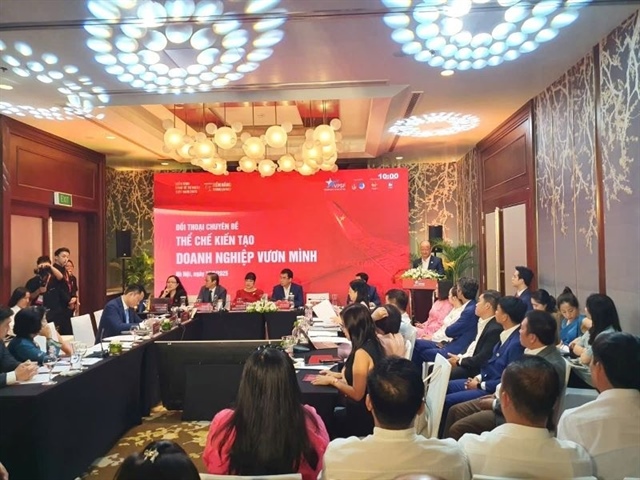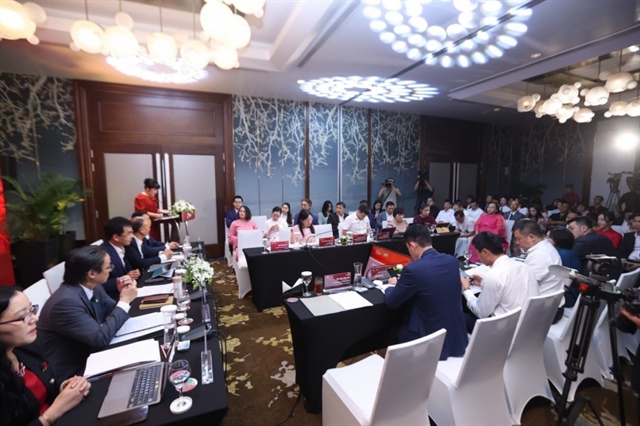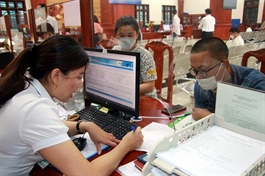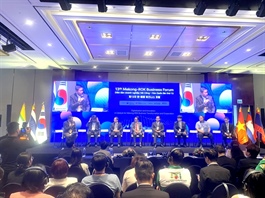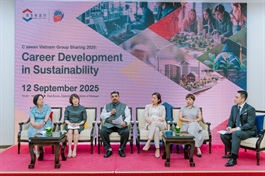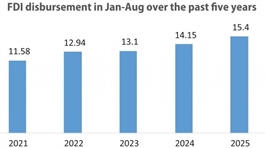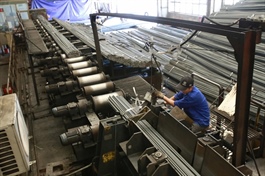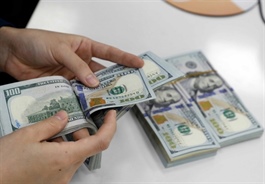Amending legal regulations criminalising business activities
Amending legal regulations criminalising business activities
Businesses made proposals to improve the legal and business environment at the Vietnam Private Sector Forum (VPSF) 2025 on September 15 in Hanoi.
|
Dau Anh Tuan, deputy secretary-general of the Vietnam Chamber of Commerce and Industry (VCCI), said there was concern among the business community over legal risks in business activities.
"These risks do not only stem from inconsistent legal and policy changes but also from the possibility of economic and civil disputes being criminalised," he said. "This is one of the issues already identified in Resolution No.68-NQ/TW of the Politburo on private sector development, raising groundbreaking and crucial policy directions. The National Assembly has also institutionalised this through Resolution No.198/2025/QH15, effective from May 17, 2025."
In reality, many criminal cases have arisen from contract, investment, bidding, and loan disputes, areas typically governed by civil and commercial law. Enterprises, especially small- and medium-sized ones, often lack internal legal capacity, making them vulnerable to being drawn into criminal proceedings when disputes occur. In many cases, one party uses criminal accusations as leverage in negotiations.
Several offences in the current Penal Code (Law No. 100/2015/QH13), such as tax evasion, deceiving customers, false advertising, producing and trading counterfeit goods, smuggling, can be easily applied to cases with underlying economic or civil nature. These offences need to be carefully reviewed to clearly distinguish between criminal acts and administrative violations or errors in business operations.
This situation has negatively impacted the spirit of innovation and risk-taking among private enterprises. Businesses are reluctant to invest or experiment with new business models. Individual entrepreneurs have become overly cautious or have even exited the market due to fear of criminal liability arising from unclear legal situations.
Nguyen Hong Phong, CEO of Tien Nong Agriculture and Industry JSC, pointed out five major concerns in the current legal framework, including slow legislative cycles. Many guiding documents become outdated as soon as they are issued.
There is no safe testing mechanism. “Currently, sandbox models are only being piloted in fintech under Decision No. 942/2021/QD-TTg issued in 2021. Other sectors such as high-tech agriculture, AI, and digital health still lack experimental frameworks,” Phong said.
The next shortcoming is rigid, inflexible regulations. Many new technologies are not included in existing regulatory lists, making registration and commercialisation difficult. For example, many businesses producing biological agricultural products struggle because their products are not listed, forcing them to register as new fertilisers and undergo years of repeated testing.
Moreover, there is currently no independent agency regularly assess the impact of new technologies on society and the legal system. And feedback from businesses and scientists is not promptly or sufficiently reflected in the law-making process. According to the VCCI, only about 20 per cent of business proposals are responded to during law-making processes, while in Organisation for Economic Co-operation and Development countries, this figure exceeds 60 per cent.
Phong proposed a legal framework that is adaptive and forward-looking, one that encourages experimentation while ensuring societal safety. "The legal framework should be like a national operating system, regularly updated to avoid falling behind. Businesses and citizens must be placed at the centre of innovation because they are the ones who test, apply, and scale new technologies in real life," he said.
Most importantly, the connection between the state, businesses, and academic institutions must be genuine, forming a policy co-creation ecosystem, ensuring that all legal documents real-life practices. “This is the institutional key for us to move beyond a 'follower mindset' and assert leadership in the region,” Phong emphasised.
|
Dau Anh Tuan from VCCI also offered specific recommendations, prioritising the amendment of legal provisions that risk criminalising business activities. “One of the main causes of this criminalisation risk is the lack of clarity in criminal law, the boundary between crime and administrative or civil violations is not clearly defined. To fundamentally solve this issue, we need to review and amend economic violations in the Penal Code,” he raised.
He recommended that the review process follow the spirit of Resolution No.68-NQ/TW, only applying criminal sanctions in truly necessary cases, where actions are intentional, fraudulent, cause serious and irreparable harm, or show signs of profiteering. Priority should be given to administrative, civil, or economic measures in cases where consequences can be resolved through negotiation, compensation, or behavioural adjustment.
“A legal system designed to support rather than punish, to civilize rather than criminalise, will unlock the flow of innovation, creativity, and investment in the private sector, a key driver for sustainable economic growth in the coming period. This is not just a legal vision, but a national development strategy,” Tuan highlighted.
- 12:02 16/09/2025


